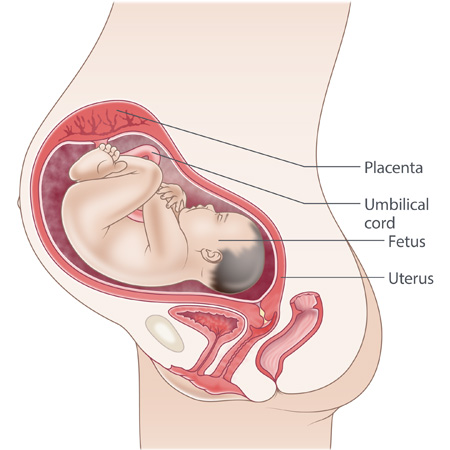
Week 32 of Pregnancy: A Comprehensive Guide
Introduction
Congratulations on reaching the 32nd week of your pregnancy! This is an exciting and transformative time as your baby continues to grow and develop rapidly. While you may be experiencing a range of physical and emotional changes, it’s important to remember that every pregnancy is unique. Embrace this journey and seek support from your healthcare provider and loved ones as needed.
Fetal Development
- Weight and Length: Your baby now weighs approximately 4 pounds (1.8 kilograms) and measures about 16.5 inches (42 centimeters) from head to toe.
- Organs and Systems: The baby’s organs and systems are fully formed and functioning, although they are still maturing. The lungs are actively producing surfactant, a substance that helps the alveoli expand and fill with air after birth.
- Brain Development: The baby’s brain is rapidly developing, with the formation of new neural connections and an increase in brain activity.
- Movement: Your baby is very active at this stage, kicking, punching, and rolling around in the womb. You may feel these movements as strong and frequent.
- Senses: The baby’s senses are becoming more acute. They can now hear sounds from outside the womb, such as your voice and music.
Maternal Changes
- Weight Gain: You have likely gained about 25-35 pounds (11-16 kilograms) by this point.
- Abdominal Growth: Your uterus is now about the size of a cantaloupe and continues to expand as the baby grows.
- Back Pain: As your belly grows, you may experience lower back pain due to the increased weight and pressure on your spine.
- Leg Cramps: Leg cramps are common during pregnancy, especially at night. They are caused by muscle fatigue and dehydration.
- Constipation: Hormonal changes and the pressure of the uterus on the intestines can lead to constipation.
- Hemorrhoids: Increased blood flow to the pelvic area can cause hemorrhoids, which are swollen and inflamed veins in the rectum.
- Varicose Veins: Varicose veins are enlarged and twisted veins that can appear on the legs and vulva during pregnancy.
- Frequent Urination: As the baby’s head descends into the pelvis, it can put pressure on your bladder, causing frequent urination.
- Heartburn and Indigestion: The growing uterus can push up against your stomach, leading to heartburn and indigestion.
- Mood Swings: Hormonal fluctuations and the physical demands of pregnancy can contribute to mood swings.
Prenatal Care
- Regular Checkups: Continue to attend your scheduled prenatal appointments to monitor your and your baby’s health.
- Ultrasound: Your healthcare provider may recommend an ultrasound to assess the baby’s growth, position, and amniotic fluid levels.
- Blood Tests: Blood tests may be done to check your iron levels, glucose levels, and blood count.
- Cervical Exam: Your healthcare provider may perform a cervical exam to check for dilation and effacement.
- Pelvic Exam: A pelvic exam can help determine the baby’s position and the size of your pelvis.
Lifestyle Recommendations
- Exercise: Regular exercise is safe and beneficial during pregnancy. Choose activities that are low-impact and comfortable for you.
- Nutrition: Eat a healthy diet that includes plenty of fruits, vegetables, whole grains, and lean protein.
- Hydration: Drink plenty of fluids, especially water, to stay hydrated.
- Sleep: Aim for 7-9 hours of sleep each night. Use pillows to support your belly and back.
- Stress Management: Find healthy ways to manage stress, such as yoga, meditation, or spending time in nature.
- Avoid Alcohol and Smoking: Alcohol and smoking can harm your baby’s development.
- Limit Caffeine: Limit caffeine intake to less than 200 milligrams per day.
Common Concerns
- Preeclampsia: Preeclampsia is a condition characterized by high blood pressure and protein in the urine. It can develop during the second half of pregnancy and requires medical attention.
- Gestational Diabetes: Gestational diabetes is a type of diabetes that develops during pregnancy. It can cause high blood sugar levels, which can affect the baby’s growth and health.
- Preterm Labor: Preterm labor is labor that begins before 37 weeks of pregnancy. It can be caused by various factors, such as infection or uterine abnormalities.
- Placental Abruption: Placental abruption is a condition in which the placenta separates from the uterine wall before delivery. It can cause bleeding, abdominal pain, and fetal distress.
- Fetal Distress: Fetal distress occurs when the baby’s heart rate or oxygen levels drop below normal. It can be caused by various factors, such as placental insufficiency or umbilical cord problems.
Conclusion
Week 32 of pregnancy is a significant milestone in your journey. Embrace the changes your body and baby are experiencing, and prioritize your health and well-being. By following the recommendations provided, you can navigate this phase with confidence and prepare for the arrival of your little one. Remember to seek support from your healthcare provider and loved ones as needed. With love, care, and a positive mindset, you will continue to thrive throughout your pregnancy and beyond.